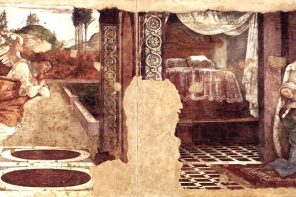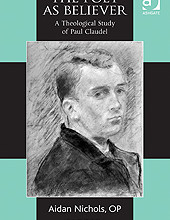What makes a good writer? Is it a firm grasp of language? A creative mind? A broad literary taste? A thorough education? Is it all of the above or something else altogether? I’d like to attempt an answer to this question by looking at the examples of Anne Lamott, C. S. Lewis, and J.R.R. Tolkien.
First off, I would like to state the obvious: writing is hard work. And one of the hard parts of writing is that it doesn’t look like hard work. It does not seem like the author is doing very much just sitting there, staring blankly at a screen, a piece of paper, or the infinite beyond that we perceive when our eyes slide out of focus after twenty seconds of inactivity like a screen saver for our visual preceptors. No, writers do not look like hard workers. To the contrary, writers generally look like loafers.
Journalist Burton Rascoe captured this truth with the following observation: ‘What no wife of a writer can understand . . . is that a writer is working when he is staring out of the window’. [1]
And in his beautiful poem ‘Adam’s Curse’, poet W. B. Yeats laments that
[To] articulate sweet sounds together
Is to work harder than all these, and yet
Be thought an idler by the noisy set
Of bankers, schoolmasters, and clergymen. [2]
But what the wives (or husbands) and other members of the ‘noisy set’ may not realize is that the writer herself often feels these same pangs of condemnation. While her glazed-over eyes become ever-so-slightly crossed in her deadpan face, her mind may be barreling down the tracks of doubt, derision, and despair. She is rehearsing all the ways that she is a dried-out hack with not a drop of inspiration left with which to assuage a world thirsty for content that matters. She is distracted by the troubles she is trying to write about and those she is trying, under any circumstance, not to write about. And, above all, she is hungry.
These are some of the sentiments that Anne Lamott discusses in her humorous and relatably manic book Bird by Bird. The book’s title is based on a story she remembers from her childhood: Lamott’s family was enjoying a vacation at their cabin, but her ten-year-old brother was sitting at the kitchen table, nearly crying. He had three months to complete a school project about birds, but now it was due the next day, and he had not even started. The table was covered in books about birds. Her brother stared at them, ‘immobilized by the hugeness of the task ahead’. Lamott’s father sat down next to him, put his arm around the boy’s shoulder, and said, ‘Bird by bird, buddy. Just take it bird by bird’. [3]

This is the same advice that Lamott offers to aspiring writers who look at the heap of work that is writing and feel daunted to the point of paralysis. What should I say? What should I not say? How do I make this believable? And where on earth do I start? In answer to these stupefying questions, Lamott puts her arm around the reader’s shoulder and says, ‘Bird by bird, buddy. Just take it bird by bird’.
The book is her course material for a writing class that she teaches, and it also includes assorted witty observations from life. Each time her classroom fills with fresh would-be writers, their faces aglow with possibility and their passion as yet undimmed by the daily struggle to put words on paper, Lamott offers them not just advice but experience.
For example, she describes a scene familiar to all writers: the thoughtful concentration that turns into distraction and then daydreaming, worrying, self-diagnosis, panic, paranoia, and, finally, hysteria. ‘But all of this only takes somewhere between one and two minutes’, she says, ‘so I haven’t actually wasted that much time. Still, it leaves me winded. I go back to trying to breathe, slowly and calmly, and I finally notice the one-inch picture frame that I put on my desk to remind me of short assignments. It reminds me that all I have to do is to write down as much as I can see through a one-inch picture frame. This is all I have to bite off for the time being’. [4] This is wonderful news, sanity-saving news. You do not have to sit there and create brilliant content until your hair turns white and your bones grow brittle. For now, you just have to make yourself produce one small inch of your best work.
One of the best pieces of advice that she gives is about writing meaningful content: ‘To be a good writer, you not only have to write a great deal but you have to care. You do not have to have a complicated moral philosophy. But a writer always tries, I think, to be a part of the solution, to understand a little about life and to pass this on’. [6]
This is a comforting perspective about the moral tone and content of what we write. There is no need to reinvent the theological wheel, but giving thought and voice to ‘the solution’ certainly sets great writers apart from good ones.
Now, this article is not meant to be a dissertation on Anne Lamott’s religious beliefs, which is good because she leaves them quite vague in her book. Yes, she mentions God and truth more often than do many other books about writing, but I’m not sure she would consider herself a religious writer. In fact, while she does identify as a Christian, I think she and I may disagree on some of the finer points of theology and practice. But, as I said, she leaves the details of her beliefs rather nondescript in this book, so instead of discussing those, I would like to mention two authors who did excel at being part of the solution: C. S. Lewis and J. R. R. Tolkien.
For Lewis and Tolkien, being part of the solution meant crafting excellent literature to fill a void in modern England’s literary canon of Christian mythology. They noticed a dearth of books that were imaginative, true, beautiful, and recent, and so they took it upon themselves to make up for this lack. And hallelujah that they did! Even in their fiction alone, both Lewis and Tolkien shine as standards for Christian writers today.
For example, Lewis’s fiction is replete with powerful truths. Although it took him many years to arrive at the conclusion that God was more than a widespread delusion, his struggle and journey made his view of God even deeper. From the time of his conversion onward, his writings were full of Christian truths that span the chasm between head and heart.
God is a constant presence in his writings, whether wrapped in analogy or standing bold and undisguised. Lewis’s fiction contains profound theology, whether i is substitutionary atonement in The Lion, The Witch, and the Wardrobe, original sin in Perelandra, or even faith in the character of God in Till We Have Faces. Yet he does not bog down his books with thick, didactic discourses. Instead, he weaves these truths into the fibers of the fiction itself, creating what is both simple and deep.
Tolkien, on the other hand, maintained a firm grasp on his religious convictions throughout his life, even playing an instrumental role in Lewis’s conversion. In his writings, God is not always a definite character; rather, He is the fabric of the tapestry, the atmosphere of the earth. In his own meticulous and ornate way, Tolkien displays the truth that God has written His law on our hearts. Readers may enjoy his works without realizing that their souls are resonating with Biblical truths.
For example, his The Lord of the Rings is a great illustration of keeping one’s ‘moral philosophy’ uncomplicated in one’s fiction. While he never quotes Bible verses or even mentions God directly, the truth in these books resounds in the deepest part of our hearts. Toward the end of the trilogy, Sam asks Gandalf, ‘Is everything sad going to come untrue?’ and our souls shout a decisive ‘Yes!’ [7] Middle Earth is a stage on which God’s glory shines brightly, and we can sense that.
With writing like theirs, it is plain to see that Lewis and Tolkien were most certainly, as Lamott advises, ‘part of the solution’. But what about you and me? What if my writing isn’t nearly the same caliber as that of Lewis or Tolkien? What if my writing is, quite frankly, chicken scratch compared to theirs? That is quite all right. All I need to do is write one little inch of my best work.
I do not need to change the world with this paragraph, but I do need to represent the truth and beauty of the world in every line.
See, God has given each of us a unique perspective. That is the framework from which we think, interact, and write. For us, being part of the solution may mean nothing more than depicting the world as it really is: a place in which God uses broken but willing people to sketch His glory, even if the portrait is clumsy. The result may not be dazzling or staggering, but if it is true and good, then we have been part of the solution. This is a fact that we need to rehearse next time our brainstorming turns into daydreaming, self-doubt, or hysteria. When we feel like dried-out hacks with no inspiration, we can take comfort in the fact that we are not the source of inspiration anyway. Rather, we are channels of divine truth and beauty, even if it seems like chicken scratch.
That, I believe, is what makes a good writer: a unique perspective that depicts the truth as beautiful. I do not know if Lamott would agree with this conclusion, but that is all right. I still found her advice to be helpful and her experience to be comforting. She helps you remember that it is not impossible to tame words into jumping through hoops. All it takes to be part of the solution is the determination to patiently work on your writing one word at a time.
Bird by bird, buddy. Just take it bird by bird.
[1] http://izquotes.com/author/burton-rascoe.
[2] https://www.poetryfoundation.org/poems/43285/adams-curse.
[3] Anne Lamott, Bird by Bird: Some Instructions on Writing and Life(New York: Pantheon Books, 1994), 19.
[4] Ibid., 17-18.
[5] Ibid., 133.
[6] Ibid., 107.
[7] J. R. R. Tolkien, The Return of the King (New York: The Ballantine Publishing Group, 1994), 246.






Enjoyable read! Thanks for sharing truth with us.
That is a simple and complex thought about writing and it opened my eyes to the to just how hard and easy it can be to write depending on your perspective going into it. Well said!
I appreciate how you put into words thoughts that I have about CS Lewis, Tolkien, and Christian writers/artists in general. I am a musician, and I believe that what you are saying about writing applies directly to music: any creative expression of art is a direct channel from and to the Divine. Our job is to communicate that, no matter what level we are at.Thanks for articulating this idea so well!